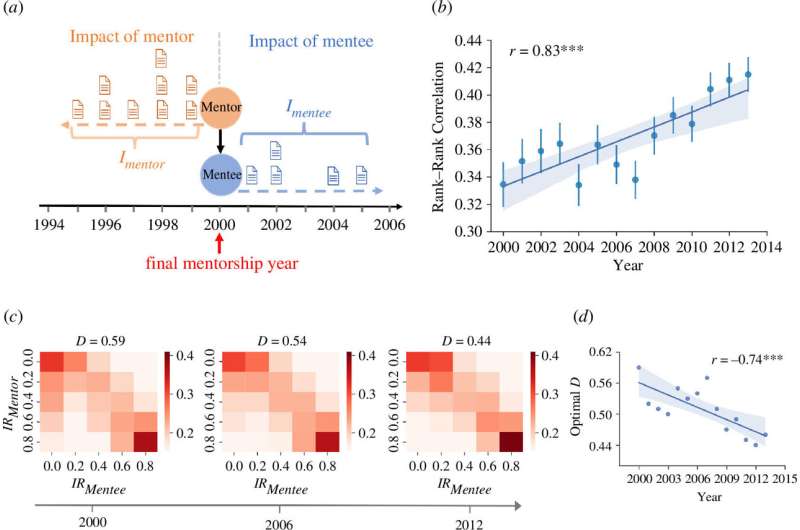
Researchers from Southeast University in China, along with University College London and Queen Mary University of London in the UK, have identified what they call the academic version of the Great Gatsby Curve in the realm of science mentorship. This discovery was detailed in a paper published in the Journal of the Royal Society Interface.
The Great Gatsby Curve, named after the character from F. Scott Fitzgerald’s novel, is used to illustrate how individuals’ economic success is often influenced by their early environment. Essentially, those who have wealthy mentors are more likely to achieve financial success themselves.
In their study, the researchers explored the citation histories of hundreds of thousands of academics across 22 disciplines. They investigated how the success of mentors correlates with the success of their mentees after the mentees began their independent careers, using citation counts as a measure of success.
The team analyzed data from academic databases, focusing on 245,000 mentor-mentee pairs who collaborated from 2000 to 2013. They tracked the citation success of these mentees up to 2023, comparing those mentored by highly cited academics with those who had less accomplished mentors.
Their findings revealed that mentees who worked with well-cited mentors generally received more citations themselves. The impact was notably stronger for graduate students compared to post-docs. Additionally, working at a prestigious institution could help offset the disadvantages for mentees with less-cited mentors.
In summary, this research suggests that having a successful mentor can significantly boost a graduate student's academic success, mirroring the influence of early wealth in economic achievement.

:max_bytes(150000):strip_icc():format(webp)/alec-baldwin-torino-film-festival-121824-3cf7cfbe5c4f4bcbb9197de4de062ea6.jpg?strip=all&resize=370,370)
:max_bytes(150000):strip_icc():format(webp)/Jimmy-Fallon-and-Prince-Harry-092624-baa1362d743d4f39a7d60bf57eb6e8b2.jpg?strip=all&resize=370,370)
:max_bytes(150000):strip_icc():format(webp)/randy-moss-121324-40b858c71b0f40bfa399e2fe00152b2a.jpg?strip=all&resize=370,370)
:max_bytes(150000):strip_icc():format(webp)/scandal-kerry-washington-121824-c51a2b5f0ef741268474bec2498c285a.jpg?strip=all&resize=370,370)
